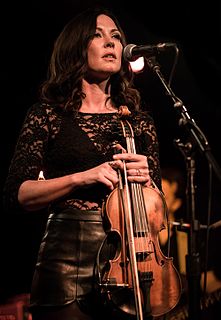A Quote by Amanda Shires
In the past, I was free to write in quiet and in the space wherever my desk was at. I could leave my instruments out. In the past, my writing was super private; I never liked showing my work at its earliest stages.
Related Quotes
Writing the past is never a neutral act. Writing always asks the past to justify itself, to give its reasons... provided we can live with the reasons. What we want is a narrative, not a log; a tale, not a trial. This is why most people write memoirs using the conventions not of history, but of fiction.
I'm not inspired by space in that kind of futuristic sense, but I've never liked retro. Of course, we always get references from the past, but that doesn't mean that the clothes have to look like the past. We need to look forward, which is why I'm fascinated by new materials, technologies, techniques, and unusual ways to use colors or textures.
You honor your writing space by recovering, if you are an addict. You honor your writing space by becoming an anxiety expert, a real pro at mindfulness and personal calming. You honor your writing space by affirming that you matter, that your writing life matters, and that your current writing project matters. You honor your writing space by entering it with this mantra: “I am ready to work.” You enter, grow quiet, and vanish into your writing.
The past is a trail you leave behind, much like the wake of a speedboat. That is, it's a vanishing trail temporarily showing you where you were. The wake of a boat doesn't affect it's course-obviously it can't since it appears behind the boat. So consider this image when you exclaim that your past is the reason you aren't moving forward.


































